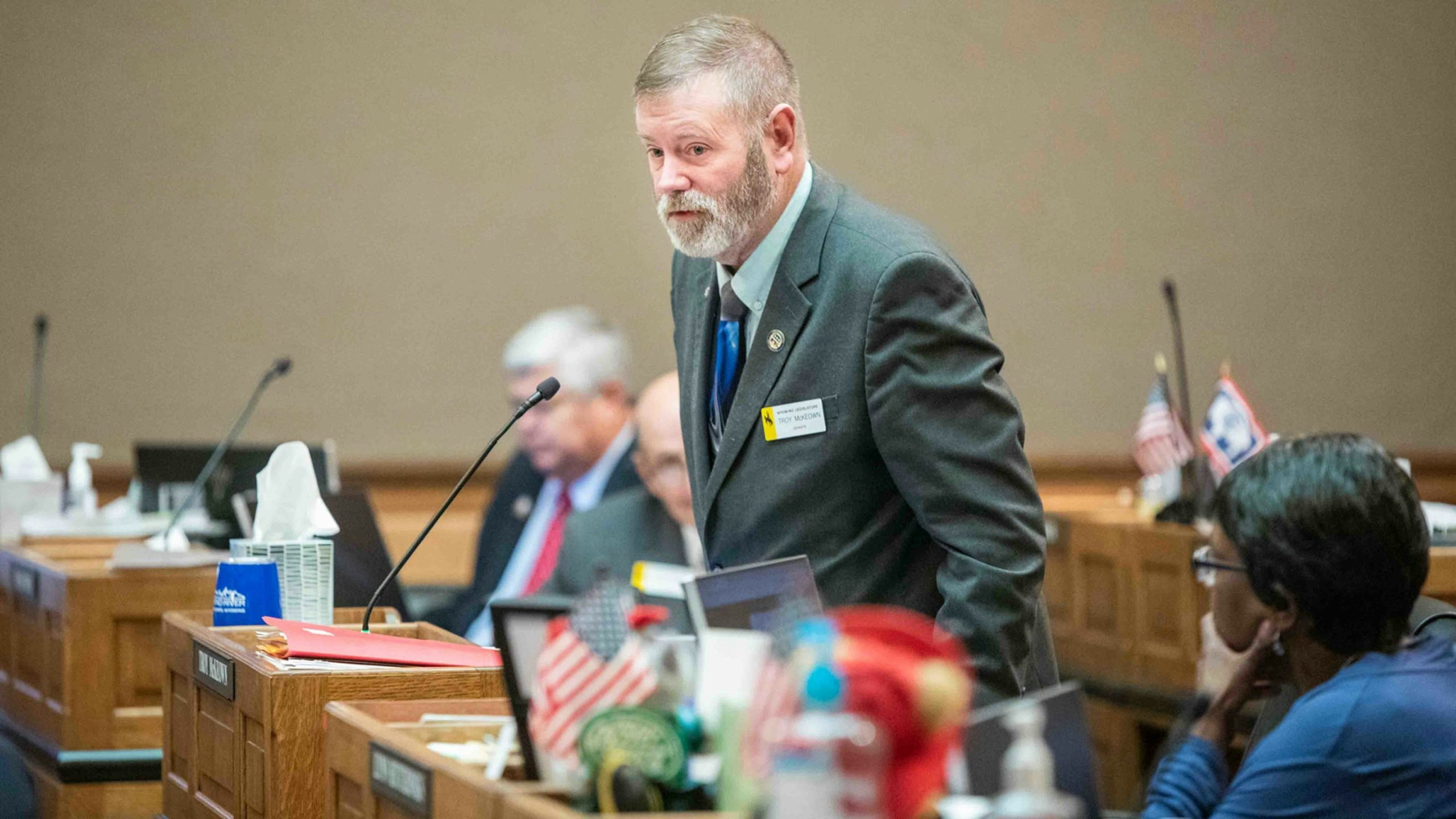A bill that would make abortion illegal in the state if the U.S. Supreme Court decides to overturn its ruling in the landmark abortion ruling Roe vs. Wade was sent to the Senate floor on Monday.
The Senate Labor, Health and Social Services committee voted unanimously to approve House Bill 92, introduced by Rep. Rachel Rodriguez-Williams, R–Cody, for full Senate debate.
As written, the law would ban abortions in the state except when the mother faces serious risks of death or irreversible physical impairments.
Monday’s hearing was a continuation of one that began in committee Friday but was ended because of a lack of time. During the the two days of testimony, speakers appeared about evenly divided in their support for or opposition to the bill.
Rev. Tim Lasseter, president of Park County Right to Life, urged the committee to approve the bill as a way to protect innocent lives.
“I can think of no greater thing than protecting the innocent and unborn,” he said. “It says in the Bible that God knows when a sparrow falls from the nest. How much more will he care about and how much more does he care about an innocent life? This is simply a bill that would protect those innocent lives should Roe v. Wade be overturned.”
Michigan pro-life activist and attorney Rebecca Kiessling, flew to Wyoming to testify in person in favor of the bill after addressing the committee by Zoom on Friday.
Kiessiling is an attorney and activist who was conceived as the result of a rape and who nearly died before birth when her mother underwent two illegal abortions, she said.
She argued that the right to personhood is protected under 14th Amendment, which she said protects the right to life under all conditions.
“And once you recognize that personhood, you can’t discriminate, and exceptions are discriminatory,” she said. “…I deserved to have been born, and I wasn’t lucky. I was protected. Legality matters.”
The bill was sent to the Senate floor despite objects voiced by several Wyoming residents.
Hannah Thomas, a Cheyenne resident and third-year medical resident at Harvard Medical School, argued that banning abortions puts a woman’s health at risk. Citing multiple studies, Thomas said that making abortion illegal does not stop the act but rather puts women’s lives in peril when they seek unsafe procedures that result in death and other complications.
Thomas also said legislation that puts restrictions on a physician’s right to treat their patients would deter current and future physicians like herself from establishing practices in the state.
Lander attorney Christine Lichtenfels likewise argued no government should mandate a woman’s choice to an abortion.
Lichtenfels also took offense to language in the bill that would ban abortions from being performed because of a woman’s emotional or psychological health.
“When Wyoming statutes and common law recognize that emotional mental and/or psychological injury, and in the case of child abuse, constitutes abuse and is criminal by legislating that only the physical condition of a pregnant woman’s body matter,” she said, “it’s as if women as just livestock. That is the definition of dehumanizing and I ask Legislature not to dehumanize women.”
Others such as Dr. Larry Meuli, pediatrician and former state legislator and former leader of what would become the state Department of Health, said that legislation such as HB92 sets a terrible precedent on what he sees as government overreach by telling a doctor how he or she can treat a patient as well as giving the government authority over a person’s life.
He also shared former U.S. Senator Al Simpson’s advice to the Wyoming Republican Party not to let the issue of abortion tear the party apart.
“When I was in the Legislature, it was kind of live and let live,” Dr. Meuli said. “And I know that it is not part of present Republican beliefs.”
Several others, including committee member Sen. Troy McKeown, R-Gillette, spoke about the sanctity of life and defending the unborn fetus, which he said is protected under the Constitution.
“I know what my Constitution says, and it really boils down to a personal definition of when that (fetus) is a life,” he said. “It’s not just the man, there’s two people and somebody has to protect the second person. This isn’t really a whole religious argument.
“This is a belief structure, and our laws are based on Judeo-Christian values and the First Commandment says what? ‘Thou shalt not kill,’” he continued. “At the end of the day, to answer your question, that’s where we’re coming at from this. When everything is said and done, that baby in the womb doesn’t have a vote or a choice.”
The bill will now be sent to the Senate floor for debate during the “committee of the whole,” the full Senate’s first review of bills approved by committees.





